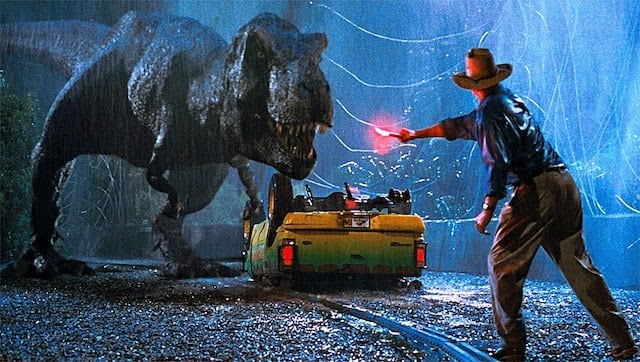When the going gets tough, we turn to our favourite guilty pleasures. But when entertainment is concerned, is there even any guilt to what gives one pleasure? In our new series Pleasure Without Guilt, we look at pop offerings that have been dissed by the culture police but continue to endure as beacons of unadulterated pleasure.
***
A dusty single-screen theatre in a cold corner of Shimla, speckled with a history of fire hazards and creaking balconies. For the first time, it is teeming with children who are fascinated by what they are watching even if they do not understand what they are watching. Some squirm, others shriek, and some, like me, even climb onto the seats and cheer; not because I understand what is happening but because of the sheer wondrousness of what I am ’experiencing.’ I am a primary school kid, there with my classmates on a school trip. Theatre going is an experience reserved for adults, for people who require the interventions of love, romance, comedy, and rebellion. To us kids, this is new.
I watched Steven Spielberg’s Jurassic Park as a first-grader, in the dingy, now-lapsed Rivoli in Shimla. The utter smashing fun of watching these impossibly alien creatures terrorise fellow humans has since never lost its charm.
[caption id=“attachment_10059011” align=“alignnone” width=“640”]
 Still from Jurassic Park[/caption] If I am asked to look back to a cinematic moment that etched the power of cinema in my brain, it would not be a Tarkovskian frame or an RD Burman number, as iconic as they might be; but the sight of a glass full of water, shaking, little ripples forming in its belly by the far-off thuds of a monster no human had contemplated before. Spielberg’s film, which came out in 1993 but was belatedly shown in cinemas in my hometown the following year, is to me, a cookie-cutting moment in the history, of not just world cinema, but Indian cinema. Theatres I remember were full from the morning onwards. I watched the film thrice, unsure at the end of it all, of what exactly it was that I had seen. And therein perhaps lies _Jurassic Park’_s importance, of creating a language, a narrative structure and scale that preceded any native anxieties about making a ‘global’ film. Film-going had suddenly turned into a spectacle, a festival of sorts.
Still from Jurassic Park[/caption] If I am asked to look back to a cinematic moment that etched the power of cinema in my brain, it would not be a Tarkovskian frame or an RD Burman number, as iconic as they might be; but the sight of a glass full of water, shaking, little ripples forming in its belly by the far-off thuds of a monster no human had contemplated before. Spielberg’s film, which came out in 1993 but was belatedly shown in cinemas in my hometown the following year, is to me, a cookie-cutting moment in the history, of not just world cinema, but Indian cinema. Theatres I remember were full from the morning onwards. I watched the film thrice, unsure at the end of it all, of what exactly it was that I had seen. And therein perhaps lies _Jurassic Park’_s importance, of creating a language, a narrative structure and scale that preceded any native anxieties about making a ‘global’ film. Film-going had suddenly turned into a spectacle, a festival of sorts.
Nothing like an unsuspecting, languorous greedy white guy who is about to be chewed by a cunning Velociraptor (my favourite creature of the lot).
As is Spielberg’s forte, the man vs wild conflict, that most of us never experience, became an adventure worthy of the experience, however facile and made-up its particulars. It is a cinematic adventure like no other, and I simply cannot help myself but be on one.
This love for gigantic, man-eating creatures has since Jurassic Park extended to other films that are, of course, inspired by Spielberg’s narrative handbook – like Godzilla
. The Jurassic Park films themselves have lost their sheen after kicking the bucket too soon, and losing in its attempt to serialise the acceptance of dinosaurs, its novelty and fearfulness. Dinosaurs simply do not inspire as much dread since they have been domesticated and traded as just about any other animal that man finds a way to colonise. Irrfan Khan’s appearance in the franchise makes it that much more special for a viewer sitting in India, but the films themselves have dried up in terms of ideas and the sheer otherworldliness that Spielberg’s first evoked.
)